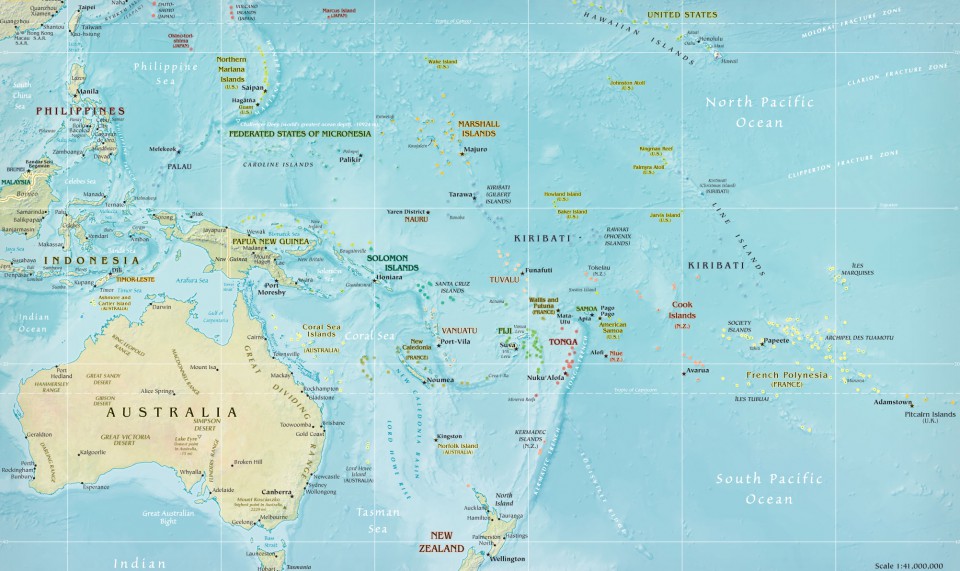Living where I do I learned that George Geroe lived locally. George is the son of Clara Lazar Geroe, appointed by Ernest Jones of the British Psychoanalytical Society as Australia’s first Training Analyst in 1940. Formerly a local GP, George is now retired. Ann Geroe, his wife, is a ceramicist of note whose work is held in, amongst other places the National Gallery of Victoria. She is no longer able to work, although, she tells me, a retrospective of her work is to be at a local gallery in the near future.
Some weeks ago I wrote George a letter of introduction. I explained that I would like to interview him about his mother. She was the only one of 6 refugee applicants, psychoanalysts sponsored by Ernest Jones in England and Paul Dane here in Australia, who arrived in this country in 1940. In later life she is reported to have said it was because she had a child that she was allowed to emigrate There were two others, Andrew Peto and his wife Elizabeth Kardos, But they remained behind in Hungary. It was not until 1948, after Elizabeth had died that Andrew Peto successfully re applied for a permit to enter Australia.. What became of the other five applicants is not known. The family had originally applied to enter New Zealand, as much to do with Willi Geroe’s interest in the outdoor life and the possibilities for that rather than anything else, according to his son.
George’s response to my note was at once a surprise and a delight. A surprise because, as he explained, I had somehow forgotten to include my phone number on the letter. His daughter looked it up for him. He was very happy to talk to me. He had read this blog, seen the post regarding his mother, and thought there were a few things to put straight.And in an interview lasting 118.02 minutes, he told me why.
Amongst other things Clara’s interest in psychoanalysis did not begin in her teens as she had related in an interview several years before she died in 1980. She had snuck into a lecture given by the psychoanalyst Ferenczi when he was garrisoned in her home town Papa in Hungary. Her elder sisters, both of them teachers, and almost twenty years older than her, had decided to go along. She, aged 16, had tagged along. It was not until she was working as a doctor in her twenties that she began to reflect upon human behaviour and, at the age of 26, began training as a psychoanalyst. Her medical training, affected by the disruptions of war, the fall of the Austro-Hungarian empire and the aftermath the great war, was hard won but necessary. Her sisters, much older than her had had an easier run: Clara realised she would have to look after herself and qualified as a doctor.
George related the early years after the family arrived in Australia were very very difficult. Both Clara and Willi had little English, money was tight. Clara concentrated on learning the language. She had several patients she could work with using the French of German languages, if not Hungarian. Willi, despite his credentials as a corporate lawyer, was unable to find a job. Subject to the prejudices meted out to refugees he was obliged to accept low level jobs – although he could have undertaken the relevant Australian exams to register. Is that so easy when one is a refugee? Particularly when Australian society had little experience of emigration other than from England. Clara, too, faced prejudice from the medical fraternity although supported in her work by her sponsor, Dr Paul Dane.
George’s account of his parents’ lives is compassionate and thoughtful. He alludes to differences of opinion between himself and his mother – Ann was’ the one girl I met that she liked’ – and the impact and stress of the work as a psychoanalyst created for her – and himself as well as his father. He acknowledges the very real friendship between Anna Freud and his mother and, indeed, the support that Anna may have provided for Clara. Ann noted that Clara used to send Anna Freud food parcels during WW2. Clara was a cultured woman,George said. She never drove, Ann related. Willi drove her into the city for work in the morning. She was always late, says George and, when she was not in her professional realm, lived the life of a Hungarian middle-class woman. Her sister, who emigrated from Hungary in the 1950s lived with Clara and Willi, cooking and keeping for her. Her Hungarian cooking is fondly remembered. Clara – ‘Klarie’ – was also a proud grandmother: deeply loved by her grandchildren as well as her daughter-in-law. And son.
I am hoping that the recording of these interviews along with the transcripts will be accepted by the a reference library somewhere… if anything they will help colour in the life and career of this most extraordinary woman, one who found herself in a role she hardly expected to be undertaking. She was not in favour of emigrating from Europe. The advent of the Nazis and war stymied that idea. Willi saw to it that they made it out, according to George. And like many refugee families they had their problems as well as their triumphs.
And here, too, if they are reading this, I would like to thank two very kind and generous people – George and Ann Geroe – who made themselves available for this project. They and I know that it was not an easy undertaking.
